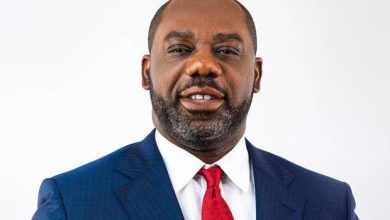UAE sign memorandum of understanding for the establishment of a technology
Ghana, UAE sign $1bn deal to build tech hub - Targets over 11,000 foreign companies

Ghana and the United Arab Emirates (UAE) have signed a memorandum of understanding (MoU) for the establishment of a technology and innovations hub to boost the country’s digital transformation and position her as a leading centre for artificial intelligence (AI) and emerging technologies.
The initiative, dubbed the “Ghana-UAE Innovations and Technology Hub,” led by UAE’s Ports, Customs and Free Zone Corporation (PCFC) will serve as a strategic base for global tech giants seeking to expand their presence in the country and across the continent.
This means it will attract more than 11,000 global companies under the PCFC umbrella—including tech giants such as Microsoft, Oracle, Meta, IBM and Alphabet, and will be serving as a regional base for AI engineering, business process outsourcing (BPO), knowledge process outsourcing (KPO) and data generation for Africa-focused machine learning.
The initial phase of the one billion dollar project, fully funded by the PCFC, in partnership with leading AI firms behind Dubai’s AI transformation, will involve the development of a 25 square kilometre (Km2) site in Ningo-Prampram with the government providing the land for the initiative.
Event
The MoU was signed in Accra last Thursday by the Minister of Communication, Digital Technology and Innovations, Samuel Nartey George, on behalf of Ghana while the Chairman of the Dubai PCFC, Sultan Ahmed Bin Sulayem, initialed for the Middle Eastern nation.
The ceremony brought together heads of the various agencies under the ministry and representatives of the Ministry of Foreign Affairs and their agencies.
Also present to witness the signing were officials of the UAE’s mission in the country.
Mr George described the agreement as a bold ambition grounded in mutual respect and built on a shared understanding that digital transformation was no longer optional but essential.
He said the initiative was designed to anchor the nation’s place as a continental leader in digital transformation and technological advancement, reflective of President John Dramani Mahama’s vision to not only diversify the economy but to ensure that innovation became a primary engine of inclusive and sustainable development.
“This hub will create a space where investment meets ingenuity, where the creativity of Ghana’s youth is matched with opportunities to try, and where advanced technologies are developed, deployed and exported.
It is about building a nation where our brightest minds no longer look outwards for opportunity, but see it in their own backyards,” he stated.
Mr George, who is also the Member of Parliament (MP) for Ningo-Prampram, said the initiative further underscored the importance of the government’s One Million Coders Programme – an initiative to train a million youth in digital in-demand skills in AI, cybersecurity, data protection and data governance.
“To Ghana’s vibrant community of tech entrepreneurs, innovators, and digital talents, this is your platform.
It is your ideas, your startups, your research, and your courage that will give it life and meaning.
We are creating the conditions for a digital renaissance, led by Ghanaians for Ghanaians.
Our goal is not to catch up with the digital age, but to help shape it,” he added.
Ideas mean wealth
Sultan Ahmed Bin Sulayem, who also serves as the Chairman and CEO of DP World, stated that in today’s world, national wealth was defined not by gold or oil but by the ability to generate, implement, and scale ideas—just as Apple turned a simple concept into a multi-billion-dollar enterprise stressing the power of ideas, engineering and innovation.
Highlighting the global shift toward automation and AI, he explained that the role of people had evolved from manual labour to high-value design, problem-solving, and supply chain management.
Using examples from DP World’s fully automated port in Rotterdam and its integrated logistics operations in over 70 countries, he emphasised that jobs were not being lost but transformed, with workers now managing smarter processes and customer relationships.
With global supply chains strained and companies looking to produce goods closer to their markets, he said Ghana was poised to become a major production and distribution hub in West Africa.



